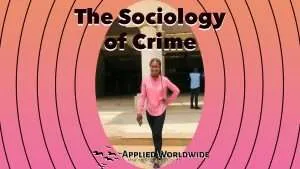Every year, in the late hours of Thanksgiving Day, hordes of shoppers flock to their favorite stores, armed with discount flyers and a fierce determination to snag the best deals. This chaotic shopping spree, known as Black Friday, has become a defining feature of the American holiday season. But what lies beneath the surface of this consumerist frenzy? In this blog post, we will embark on a sociological journey to uncover the sociology of Black Friday, examining its historical origins, the social psychology of consumerism, the role of social media, and its broader impact on society.
Historical Origins and Sociology of Black Friday
Before delving into the sociological aspects of Black Friday, it’s essential to understand its historical roots.
- A Consumer Culture Birthed in the 20th Century: Black Friday’s historical evolution can be traced back to the mid-20th century when it was first coined to describe the chaotic shopping day following Thanksgiving. As sociologists have observed, this tradition reflects the emergence of a consumer culture in post-war America.
- Symbolism of Consumption: Black Friday symbolizes the changing attitudes towards consumption and the role of material possessions in our lives. Sociologists have studied how this day highlights the significance of owning and displaying goods as a marker of social status and identity.
The Social Psychology of Consumerism on Black Friday
Black Friday is not just about scoring great deals; it’s about the social psychological and sociological drivers that push people to participate.
- FOMO (Fear of Missing Out): Sociologists often explore the psychological phenomenon of FOMO, which plays a significant role in Black Friday participation. The fear of missing out on a good deal or the communal experience draws individuals to the stores.
- Conspicuous Consumption: Sociological theories of conspicuous consumption, introduced by Thorstein Veblen, become relevant here. Black Friday shoppers often engage in this behavior, displaying their ability to purchase goods, sometimes even to the detriment of their own financial well-being.
Social Media and Black Friday
In today’s digital age, the role of social media in Black Friday cannot be understated. It has become a powerful tool for both retailers and shoppers.
- Consumer Culture in the Age of Instagram: Black Friday has evolved in the era of Instagram, TikTok, and Twitter. Sociologists investigate how social media platforms enable people to showcase their shopping hauls and create a virtual community of like-minded consumers, contributing to the perpetuation of the event.
- Impact on Identity: The sociological impact of Black Friday on identity formation is a captivating topic. Social media platforms encourage people to associate their identity with their shopping choices, potentially leading to social pressure and the cultivation of specific consumer identities.
Black Friday and Social Inequality
Beyond the allure of discounts and the rush of the shopping experience, Black Friday highlights underlying social and economic issues.
- Economic Disparities: Sociologists have long explored the economic disparities that underlie Black Friday. While some people can afford to spend lavishly, many others participate out of necessity, driven by financial constraints and the need to save on essential items.
- Labor and Retail Employees: The sociological perspective also scrutinizes the labor force that makes Black Friday possible. Retail employees often work long hours during this period, sometimes in less-than-ideal conditions. This highlights the inequalities in the labor market and the power dynamics between employers and employees.
The Broader Societal Impact
Black Friday’s influence extends beyond just one frenzied day of shopping.
- Consumerism and Sustainability: Sociologists explore how Black Friday reinforces consumerist culture and its impact on sustainability. The excessive production and consumption of goods have significant environmental consequences.
- Community and Social Bonds: On the flip side, Black Friday also presents an opportunity for communities to come together. Some families and groups of friends make Black Friday shopping a tradition, strengthening their social bonds through shared experiences.
Final Thoughts on the Sociology of Black Friday
Black Friday is a fascinating sociological phenomenon, offering a window into the complex dynamics of consumer culture, social psychology, social media, and social inequality. While it’s easy to dismiss it as a mere shopping spree, understanding the sociology of Black Friday helps us see it as a microcosm of broader societal trends and issues.
As we prepare for the next Black Friday extravaganza, let’s not only hunt for deals but also reflect on the sociological insights it offers. Black Friday serves as a captivating case study, showing us the profound ways in which consumption and materialism intersect with our identities, values, and social structures in the 21st century.







